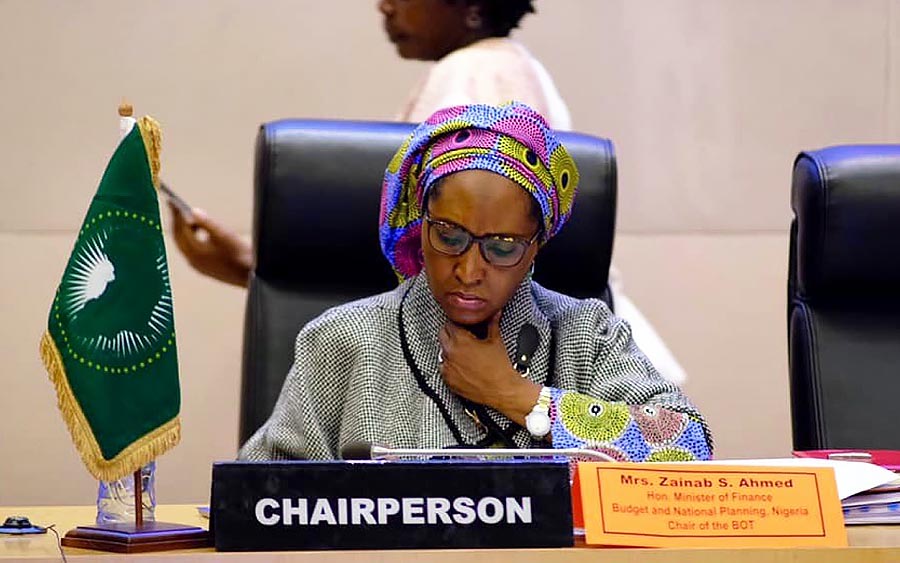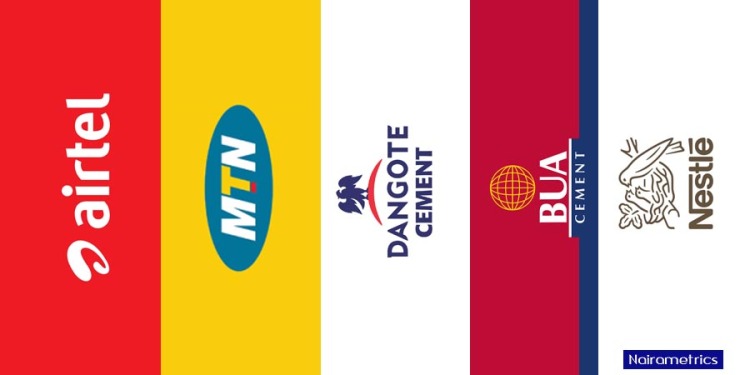The Minister of Finance Dr. Zainab Ahmed revealed there are plans between her ministry and the central bank (CBN) to convert loans from the apex bank into tradeable securities.
This was disclosed in the question and answer session following the recent public presentation of the 2021 approved budget – breakdown and highlights by the Minister of Finance and DG Budget Office.
READ: FG discloses how it will finance N5.36 trillion budget deficit
She responded to a question about any plans to tap into CBN financing for the 2021 budget as no provision was made last year, yet about N2.8 trillion was borrowed as exclusively reported by Nairametrics.
FG to turn CBN loans into formal borrowing
According to Mrs. Ahmed, the government is working with the central bank to regularize the loans and will turn them into formal borrowings, suggesting that the over N2.8 trillion in Ways and Means extended loans could be repackaged and sold as bonds.
READ: Growing concern for Nigeria’s ballooning debt profile
“On CBN financing, we will not normally make a line provisioning for the financing. So we have domestic borrowing in the budget and that covers whatever remit of financing required to fund the national budget.”
She then went on to confirm that talks are ongoing with the central bank to turn their loans into formal borrowings and that there is a need between her ministry and the central bank to agree on the rates and the tenures and the cost of borrowing, all of which will be decided in 2021.
READ: Customs revenue rises by N200 billion to hit N1.5 trillion in 2020
“We are working with the CBN to regularise the previous borrowing that have been made to turn them into formal borrowing and by the Nigerian economy and to this extent, the CBN and I (fiscal authorities) need to agree on the rates and the tenures and the cost of the borrowing, so we would be formally doing that in early 2021 on the previous borrowing that has been made, and also projected borrowings in 2021. So we will design special instruments that limits what is done in terms of domestic borrowing from the CBN.”
READ: New CBN guidelines ban MMOs, PSPs, Operators from receiving diaspora remittances
Nigeria’s budget deficit of N6.1 trillion part-funded by CBN
Nairametrics reported exclusively on Wednesday that the central banks borrowed N2.8 trillion from the central bank through a provision in the CBN Act called “Ways and Means” to help fund its budget deficit of about N6.1 trillion.
- The budget deficit was created by massive revenue shortfalls created by a drop in oil prices and the covid-19 pandemic.
- The result of the revenue shortfall and increased expenditure is a fiscal deficit of about N6.1 trillion as against the N4.6 trillion budgeted by the government.
- To fund this, they borrowed N2 trillion from the domestic market and another N1.2 trillion from foreign markets.
- The balance N2.8 trillion was obtained from the CBN.
READ: Nami eyes N4 trillion from extractive sector to meet President Buhari’s unusual target
The government further plans to incur a budget deficit of N5.60trillion for 2021, representing 3.93% of GDP, and will likely tap CBN Ways and Means window again even though it claims it will fund the deficit via N2.34 trillion in domestic and foreign borrowing respectively and another N709 billion from multilateral sources.
READ: Over 1 million people took loans from banks below 20% interest rate in 1 year- CBN
CBN Special Bills
The central bank last December also announced the introduction of what it calls the “Nigeria Special Bills” in what it claims is an effort to deepen the financial markets.
- The special bills provide banks with the opportunity to earn from trillions of naira of customer deposits sequestered by the CBN through CRR debits.
- Some analysts who spoke to Nairametrics believe some of this money is also used to fund government expenditure via the CBN Ways and Means programme.
READ: Crypto market breaks past $1 trillion for the 1st time in history
Effects on the market
The introduction of “special bills” and “special instruments” by the central bank and the ministry of finance respectively will inject over N3 trillion into the fixed income market in 2021.
- This will have huge implications on the capital markets in 2021 particularly equities that have benefited from the lack of fixed income securities which for years had posted returns higher than most dividend yields.
- However, with yields at record lows, dividend yields appear to be a better investment for investors.
- The Nigerian stock market was adjudged the best performing in the world with over 50% returns in 2020 and this was mostly driven by local institutional and retail investors who revved up liquidity in a market that has for years chosen fixed income securities over it.
- More government bonds in 2021 could also crowd out the private sector which as of 2020 had only received N19 trillion in credit representing just 13% of GDP, one of the lowest among frontier markets counterparts in the world.





















Where does the CBN get money from to loan to the FG? This is all delaying the inevitable. Buy bitcoin and protect your wealth from the incoming fiat financial collapse. Lebanon, Iran, Venezuela, Zimbabwe, Sudan, Argentina have had their currencies lose tremendous purchasing power in the past decade; Lebanon was just last year. Nigeria could be next.
This is just like American mortgage backed securities. FG is creating money out of thin air enriching themselves and families.
Bitcoin is also a bubble waiting to burst.